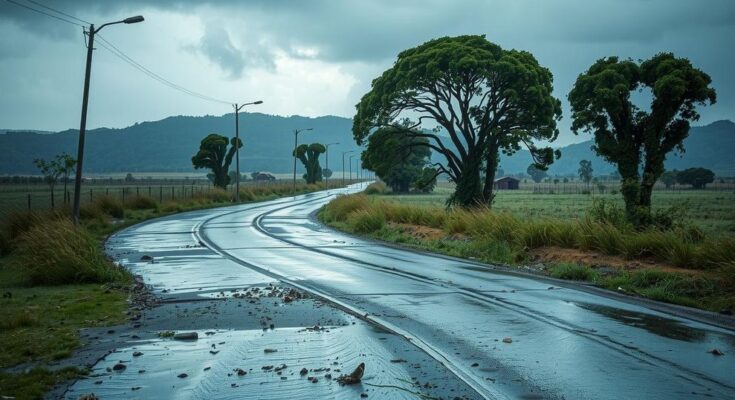Recent research indicates that climate change is disproportionately affecting Africa through extreme weather events, particularly flooding. This year alone, over 2,000 people died due to unprecedented rainfall, which was intensified by climate change. The effects are projected to worsen if proactive measures are not implemented soon, highlighting the urgent need for transitioning to cleaner energy sources across the continent.
The effects of climate change are profoundly impacting Africa, a continent that contributes only a small fraction to global greenhouse gas emissions yet suffers significantly from an overheating planet. Recent reports indicate that the combination of extreme weather events and inadequate responses could expose millions to dire conditions by 2030. Heavy rainfall during Africa’s rainy season has led to catastrophic flooding, with over 2,000 fatalities and widespread displacement across several nations, including Sudan and Nigeria.
A report from the World Weather Attribution consortium sheds light on the relationship between rising global temperatures and extreme flooding. Their findings suggest that human-induced climate change has not only made such flooding twice as likely in regions like Sudan but also intensified the severity by 10%. Experts warn that with continuous increases in temperature, the threat of extreme floods will increase correspondingly.
Despite being responsible for only 2 to 3 percent of global emissions, Africa bears the brunt of climate change consequences, highlighting a critical disparity in climate vulnerability. The United Nations Environment Programme emphasizes that the poorest populations are particularly at risk due to a lack of resources necessary for recovery from climate change disasters. Efforts by organizations like World Weather Attribution and UNEP aim to inform policymakers on the necessary actions to combat climate change and foster resilience in affected regions, advocating for a transition to renewable energy sources as a vital part of the solution.
The topic of extreme weather in Africa is intricately linked to climate change and its disproportionate effects on vulnerable populations. Despite contributing minimally to global greenhouse gas emissions, African countries are facing severe challenges due to climate-induced phenomena such as flooding and droughts. The World Meteorological Organization has predicted that without significant intervention, millions in Africa may experience worsening conditions as a direct result of changing climate patterns. This situation is exacerbated by the reliance on fossil fuels and other non-renewable energy sources within many African nations, further intensifying the adverse effects of climate change on the continent.
In conclusion, the extreme flooding experienced in Africa serves as a stark reminder of the severe implications of climate change, particularly for regions that contribute relatively little to global emissions. As highlighted by researchers, the risks of such floods will only escalate without immediate and effective climate action. Hence, it is crucial for policymakers to prioritize strategies that mitigate climate change impacts and promote sustainable energy practices to protect vulnerable populations across Africa.
Original Source: www.thecooldown.com




